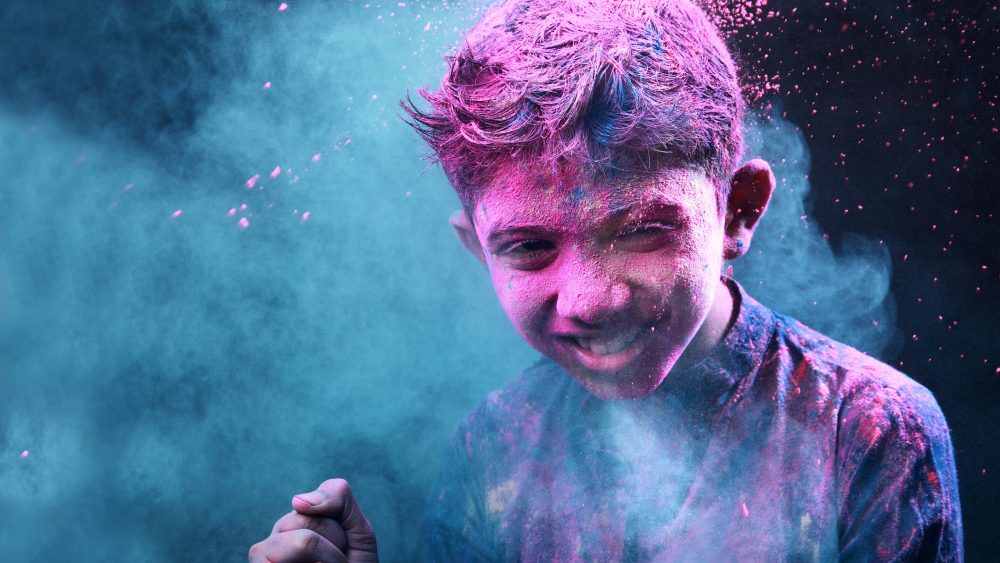by Alex, Associate Director
Holi is one of the most significant festivals in South Asia. It is primarily a cultural celebration, but it has religious roots in Hinduism. Multiple religious stories are associated with the festival, which was named after a demoness. According to the story, Holika took a child into the fire on the command of her brother, who was a demigod/demon god. Although Holika was supposed to be immune to fire, she burned and the child was spared.
To commemorate the victory of good over evil in the story of Holika, some of the religious celebrations during Holi include bonfires and worshiping gods around the fire. However, the festival is predominantly a cultural event and does not have religious significance for most participants. I grew up in a Hindu family in South Asia. In my community, we celebrated by throwing colorful dyes, spraying water and throwing water balloons at one another. I personally didn’t observe anyone engaging in religious activities other than placing a red-colored dot on the forehead, which is sometimes a Hindu expression after leaving a temple. I cannot think of any other festival throughout South Asia that is as effective in bringing strangers together to participate in fun activities. One common phrase you hear throughout Holi is, “Please don’t get offended. Today is Holi!” It’s the one day of the year when everyone throws colors or water on their neighbors, and everyone participates. So, if you’re planning on visiting South Asia during Holi, be prepared to be sprayed with water or have colored dye thrown at you.
Holi, sometimes known as the “festival of love,” provides followers of Jesus unique opportunities to connect and build relationships with members of their community they might not otherwise know. After all the fun and chaos of water and color, people usually freshen up and come back together to spend time over a meal. Conversations flow naturally about the victory of good over evil, and plenty of Bible stories highlight that same message. One of my favorites to highlight is the faithfulness of Shadrach, Meshach and Abednego in the face of oppression from King Nebuchadnezzar (Daniel 3).
As South Asian people worldwide celebrate Holi today, join me in praying that more Hindus will soon have opportunities to hear the Good News of Jesus and respond to God’s love. Use 2 Corinthians 4:4-6 to guide your prayers. As a former Hindu, I know that reasoning doesn’t always help, because Hinduism teaches that many ways lead to the same place. However, prayer is powerful! Join us in praying that the veil will fall, allowing God’s light to shine in their hearts and give them the light of the knowledge of God’s glory displayed in Jesus.
Access tools to help guide your prayers for the Hindu world at frontierfellowship.com/pray


Comments are closed.